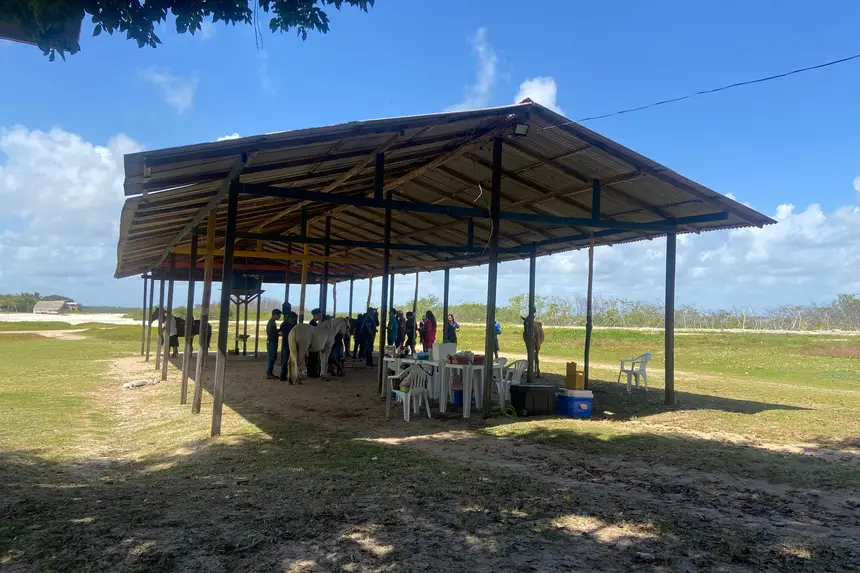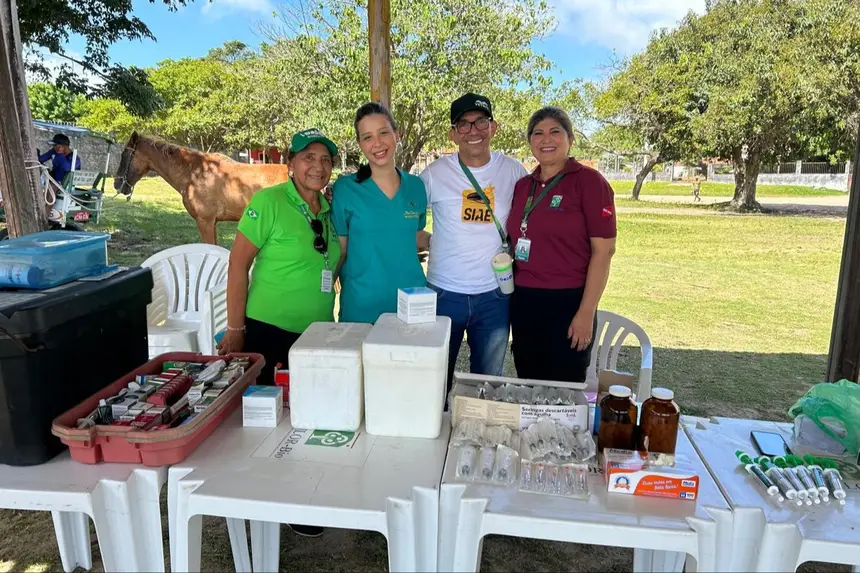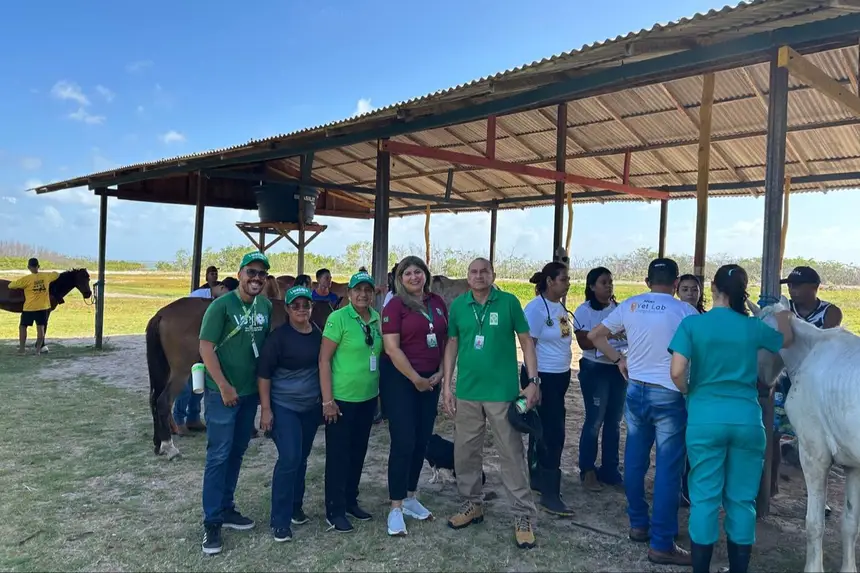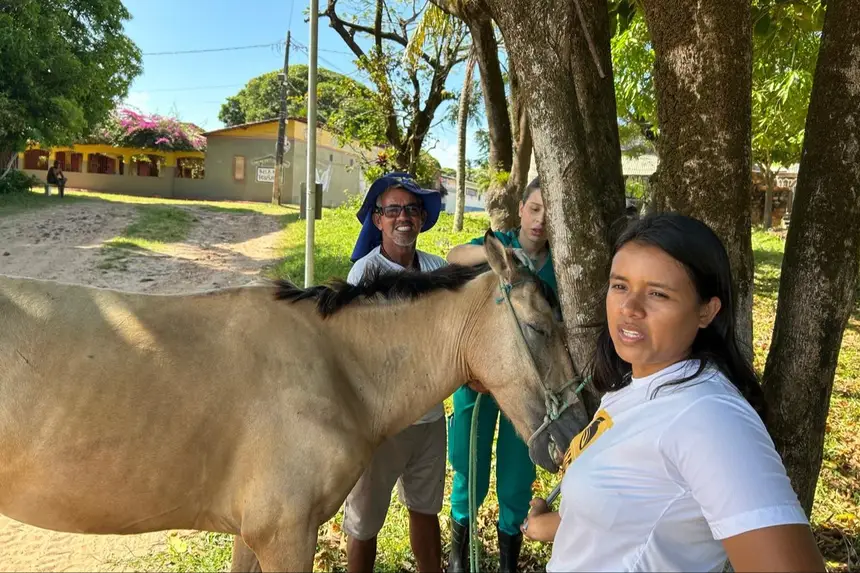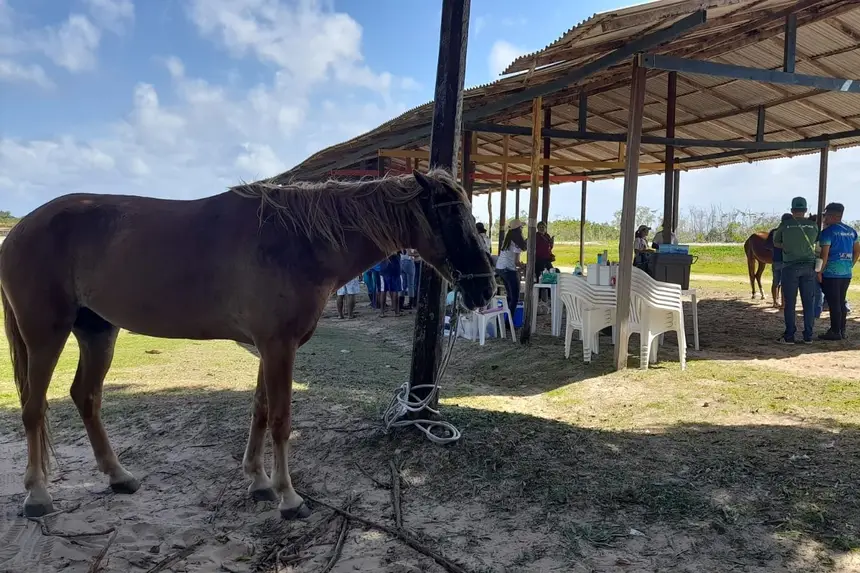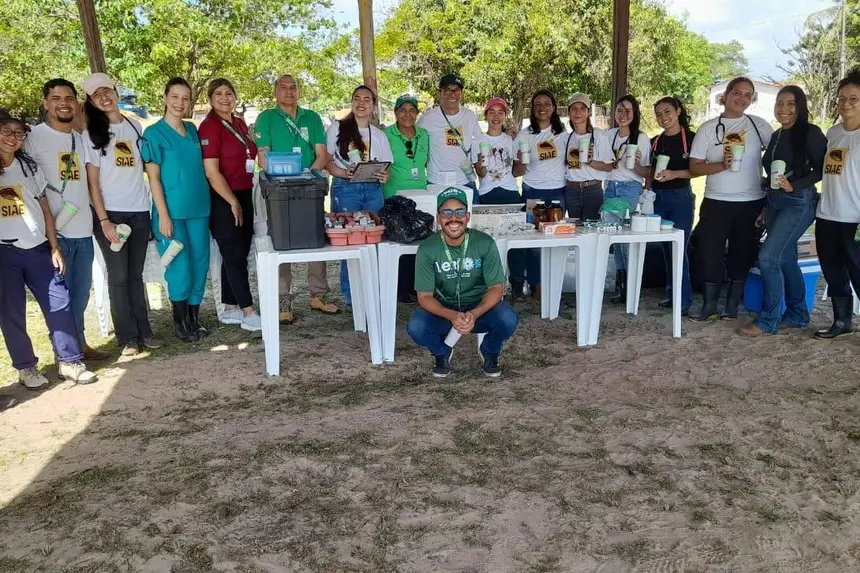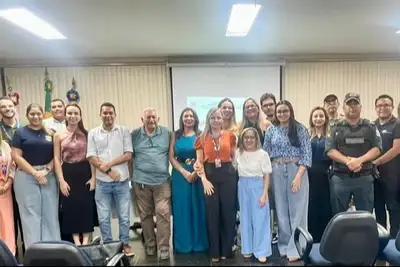Project brings veterinary care to horses in the APA Algodoal-Maiandeua, in Maracanã
More than 160 animals will benefit from a joint action that reinforces health and well-being on the island
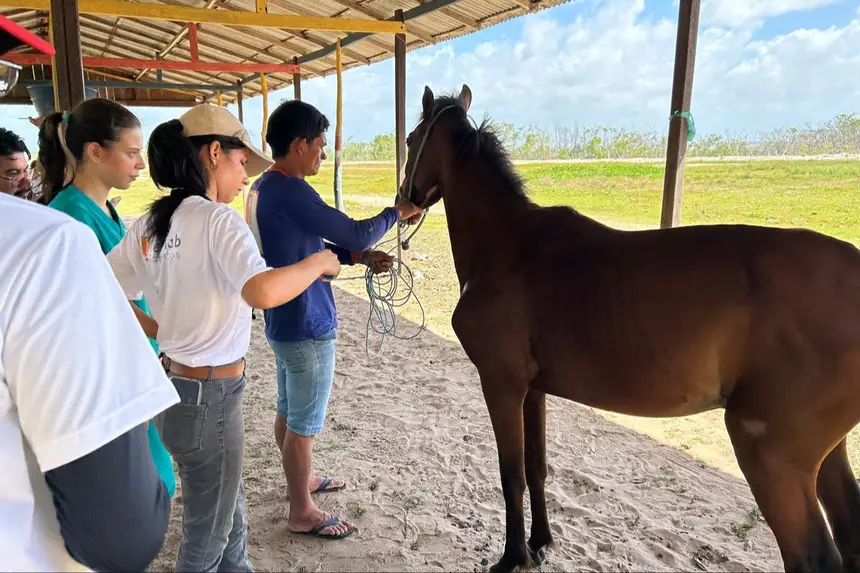
Horses, donkeys, and mules used for transporting residents and tourists in the Environmental Protection Area (APA) Algodoal-Maiandeua, in Maracanã, northeastern Pará, are receiving veterinary care through the 27th edition of the Carroceiro Project. The action began last Thursday (21) and will continue until Saturday (23), providing clinical care, vaccination, and health monitoring, in an initiative coordinated by the Federal Rural University of the Amazon (Ufra), with support from various public institutions.
The program responds to the request of the Public Ministry of the State of Pará (MPPA) and the Institute of Forest Development and Biodiversity of Pará (Ideflor-Bio), aiming to ensure the well-being of animals that play an essential role in the daily life of the state conservation unit — where the use of motor vehicles is prohibited.
Animal health integrated with environmental preservation
Over the three days, more than 160 animals are expected to be treated in the locations of Algodoal, Fortalezinha, and Mocooca, from 8 am to 4 pm, with the program concluding on Saturday at noon. About 15 professionals and students from Ufra are participating in the action, along with representatives from the Federal University of Pará (UFPA), the Agricultural Defense Agency of Pará (Adepará), the City Hall of Maracanã, and Ideflor-Bio itself.
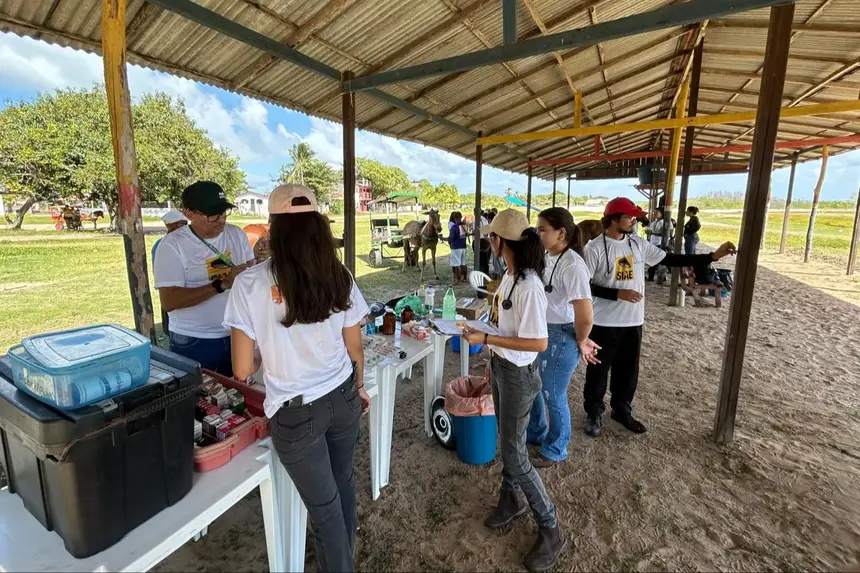
The services include the application of dewormers, parasite control, dressings, microchipping, and, as a new feature of this edition, rabies vaccination for herbivores — a preventive measure against the risk of virus transmission by hematophagous bats, especially after recent reports of bites in Fortalezinha.
“The campaign plays a strategic role, both in animal health and public health. In addition to combating mistreatment and guiding guardians, we aim to prevent diseases such as rabies, which can be transmitted to humans,” explained veterinarian Heriberto Figueiredo, coordinator of the Carroceiro Project.
Monitoring and ongoing education
In addition to the treatments, Adepará conducts the capture and collection of bats for laboratory examinations, expanding rabies monitoring in the region. The goal is to immunize the animals and train their guardians to maintain care over time, consolidating a local network of permanent attention to the health of equines.
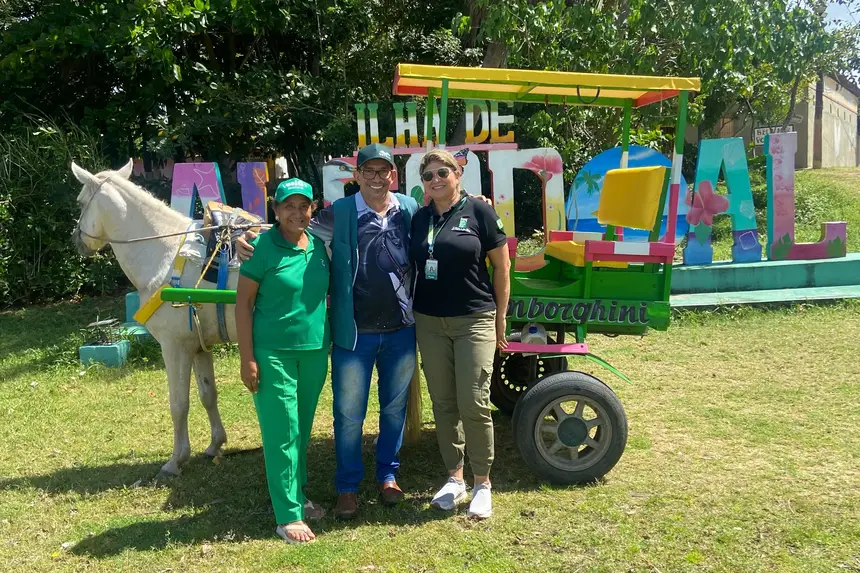
For Raimunda Araújo, manager of the Administrative Region of Northeast Ideflor-Bio, the initiative strengthens the management of the APA by integrating environmental conservation, sanitary safety, and cultural appreciation. “Transport by carts is part of Algodoal's identity. This joint action demonstrates the commitment of institutions to the quality of life of animals and the population, as well as the protection of biodiversity,” she emphasized.
Tradition and collective commitment
Present on the island of Maiandeua for over two decades, the Carroceiro Project has established itself as a support initiative for the local Carroceiros Association, offering free services in light of the high costs of veterinary care in the region. The action reinforces the sustainable development model of the APA, which balances tourism, preservation, and traditional ways of life.

The organizers expect that the partnership between science, public management, and the community will continue to grow, ensuring that the care provided in this edition results in lasting improvements for the animals and their guardians.


